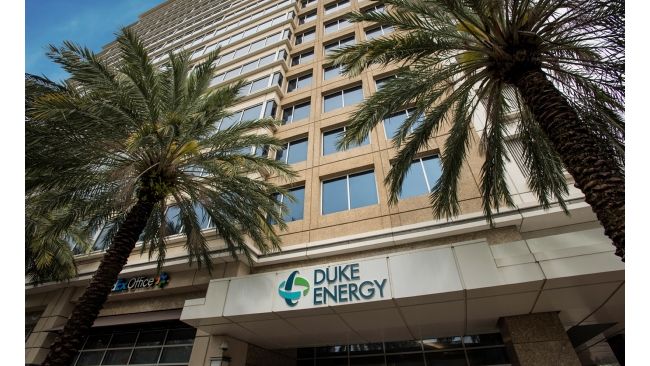Duke Energy Florida Reduces Customer Bills Starting January 2024
- None.
- None.
Insights
The reduction in customer rates by Duke Energy Florida represents a strategic move that could have ripple effects across the energy market. Lower rates could lead to increased consumer satisfaction and potential competitive advantages. The decision, approved by the FPSC, indicates a regulatory environment supportive of consumer interests. This rate decrease may also reflect improvements in operational efficiency or cost reductions in fuel procurement, renewable energy integration, or technology advancements.
Stakeholders should monitor how this reduction might influence energy consumption patterns. If lower rates lead to higher usage, the resultant demand could impact energy production and supply dynamics. Conversely, it may encourage customer loyalty and reduce churn in a highly competitive market. Investors should consider the potential for Duke Energy to leverage cost leadership as a strategy to maintain or grow its market share.
From a financial perspective, the rate decrease announced by Duke Energy Florida is indicative of a company responding to cost pressures and market demands. The $11.29 decrease for typical residential customers might seem modest, but it reflects positively on the company's ability to manage expenses and pass savings to consumers. This action could improve Duke Energy's public image and customer relations, potentially translating into customer base stability.
Investors should evaluate the long-term financial implications of this rate cut. It's critical to assess whether the reduced rates are sustainable without compromising profitability. The company's future financial statements should be scrutinized for impacts on revenue and margins. Additionally, this strategy should be weighed against the company's investment in infrastructure and clean energy, which are essential for long-term growth in the energy sector.
Understanding the consumer behavior implications of Duke Energy's rate decrease is crucial. A decline in utility costs can increase disposable income for consumers, potentially influencing spending in other sectors. This change could also alter the perceived value of energy efficiency investments among consumers. If the cost savings are significant, customers might deprioritize energy-saving measures, which could have environmental repercussions.
Conversely, the rate decrease could be perceived as Duke Energy's commitment to affordability and sustainability, bolstering consumer trust. This trust can be a vital intangible asset that, over time, translates into brand equity. It's important to observe subsequent consumer satisfaction surveys and customer retention rates to gauge the true impact of this rate change on consumer behavior.
ST. PETERSBURG, Fla. / ACCESSWIRE / January 3, 2024 / Duke Energy:
- Residential customers using 1,000 kilowatt-hours (kWh) will see a decrease of
$11.29 - Company continues to take steps to lower costs while providing the reliable, cleaner energy Florida customers deserve
Duke Energy Florida will reduce customer rates in 2024.
The Florida Public Service Commission (FPSC) unanimously approved Duke Energy's request to lower rates starting in January 2024. A typical residential customer using 1,000 kWh will see a decrease in their January 2024 bill of
Commercial and industrial customers will see a bill decrease between
The bill reduction includes storm recovery costs combined with lower fuel and capacity costs for 2024.
"By combining Hurricane Idalia costs with the remaining balance of prior storms and previously filed bill reductions like lower fuel costs, we are able to provide some much-needed bill relief to our customers," said Melissa Seixas, Duke Energy Florida state president.
"We will continue to take steps to provide the best possible price for our customers, while delivering the reliable, cleaner energy customers deserve," said Seixas.
The company encourages customers to take advantage of the numerous flexible billing and energy savings programs, including free home assessments, budget billing and usage alerts, to help customers save energy and money.
To learn more about these programs, visit duke-energy.com/SeasonalBills or call the Customer Care number listed on your energy bill.
Duke Energy Florida
Duke Energy Florida, a subsidiary of Duke Energy, owns 10,500 megawatts of energy capacity, supplying electricity to 1.9 million residential, commercial and industrial customers across a 13,000-square-mile service area in Florida.
Duke Energy (NYSE:DUK), a Fortune 150 company headquartered in Charlotte, N.C., is one of America's largest energy holding companies. Its electric utilities serve 8.2 million customers in North Carolina, South Carolina, Florida, Indiana, Ohio and Kentucky, and collectively own 50,000 megawatts of energy capacity. Its natural gas unit serves 1.6 million customers in North Carolina, South Carolina, Tennessee, Ohio and Kentucky. The company employs 27,600 people.
Duke Energy is executing an aggressive clean energy transition to achieve its goals of net-zero methane emissions from its natural gas business by 2030 and net-zero carbon emissions from electricity generation by 2050. The company has interim carbon emission targets of at least
Duke Energy was named to Fortune's 2023 "World's Most Admired Companies" list and Forbes' "World's Best Employers" list. More information is available at duke-energy.com. The Duke Energy News Center contains news releases, fact sheets, photos and videos. Duke Energy's illumination features stories about people, innovations, community topics and environmental issues. Follow Duke Energy on Twitter, LinkedIn, Instagram and Facebook.
Contact: Audrey Stasko
24-Hour: 800.559.3853
Twitter: @DE_AudreyS
View original content here.

View additional multimedia and more ESG storytelling from Duke Energy on 3blmedia.com.
Contact Info:
Spokesperson: Duke Energy
Website: https://www.3blmedia.com/profiles/duke-energy
Email: info@3blmedia.com
SOURCE: Duke Energy
View the original press release on accesswire.com
FAQ
What is the latest news about Duke Energy (DUK) in Florida?
How much will the residential customers using 1,000 kWh save in their January 2024 bill?







